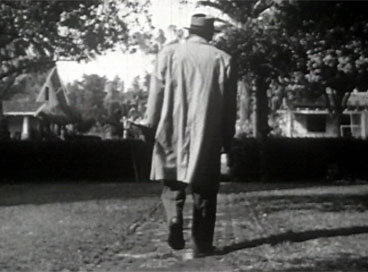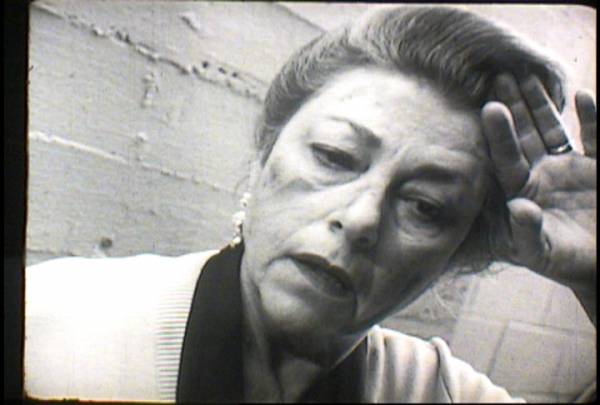
Jay Rosenblatt’s remarkable THE DARKNESS OF DAY will have its New York premiere October 13-18 at MoMA
MoMA Film
Museum of Modern Art
11 West 53rd St. between Fifth & Sixth Aves.
October 13-18
Tickets: $10, in person only, may be applied to museum admission within thirty days,
same-day screenings free with museum admission, available at Film and Media Desk
212-708-9400
www.moma.org
www.jayrosenblattfilms.com
Watching his films, it’s easy to see how Jay Rosenblatt was formerly a therapist and has a master’s degree in counseling psychology. Born in New York and based in San Francisco for many years, Rosenblatt makes what he calls “long shorts,” “diary films,” and “short shorts” composed primarily of found and archival footage and home movies. Combining the images with existing text and classical or original music, he creates mesmerizing, poetic, deeply philosophical works that explore the nature of life and loss. From October 13 to 18, MoMA will be presenting the New York premiere of Rosenblatt’s latest masterpiece, THE DARKNESS OF DAY (2009), a twenty-six-minute examination of suicide inspired by the self-inflicted deaths of two people he knew. Using footage rescued from school Dumpsters, Rosenblatt incorporates industrial and educational films about suicide, touching on such well-known cases as the Hemingway family and the first man to jump off the Golden Gate Bridge as well as that of a Japanese woman who leaped into a volcano, setting off a rash of copycats. Beverly Berning and Richard J. Silberg narrate the film, which includes readings from a suicide victim’s journal, in a steady monotone that is a trademark of Rosenblatt’s work. THE DARKNESS OF DAY is both fascinating and frightening, perhaps the most honest look at suicide we’ve ever seen.
Four other films will be screened along with THE DARKNESS OF DAY. In I JUST WANTED TO BE SOMEBODY (2006), Rosenblatt follows orange juice spokeswoman Anita Bryant’s war against gays in the 1970s. The three-minute PRAYER (2001) was part of Underground Zero, a project spearheaded by Rosenblatt and frequent collaborator Caveh Zahedi in which some 150 independent filmmakers were asked to make short films in response to the events of September 11, 2001; Rosenblatt combines shots of Muslims praying with a score by Nikolay Rimsky-Korsakov. In the three-minute AFRAID SO (2006), Garrison Keillor reads from a poem by Jeanne Marie Beaumont that asks questions that all can be answered by the title while Rosenblatt shows related images; among the questions are “Is this going to hurt?,” “Will it leave a scar?,” “Are you contagious?,” and “Will I have to put him to sleep?” Rosenblatt opens up his own wounds in the multiple award-winning PHANTOM LIMB (2005), in which the producer, writer, director, and editor compares the death of his younger brother at the age of seven to the phantom limb syndrome experienced by people after losing an arm or a leg but still feeling it is there. Over a melancholic score featuring pieces by Arvo Pärt and Benjamin Britten, Rosenblatt intercuts home movies of him and his brother with narration about his family and new interviews with a man who experiences the phantom limb phenomenon, an expert on life after death, and a cemetery owner. PHANTOM LIMB is a beautiful yet harrowing film, a powerful journey into memory and loss. Despite their often very serious subject matter, Rosenblatt’s films are absolutely thrilling to watch, intellectually stimulating, visually vibrant, and emotionally powerful. Rosenblatt will be at MoMA to introduce the 7:00 program on October 13.
